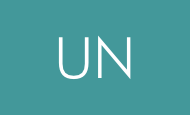Press Release:
Durban III Draft Resolution Provides Platform for NGOs
Groups that Hijacked First Conference in Position to Continue Anti-Peace Agenda
JERUSALEM – A June 8 draft resolution on the “Durban III” conference, submitted by the president of the UN General Assembly, heightens concerns regarding the potential negative role of politicized non-governmental organizations (NGOs), says Jerusalem-based NGO Monitor. Durban III is scheduled for September 2011, marking the tenth anniversary of the infamous UN World Conference Against Racism, held in Durban, South Africa.
“If, as in 2001, the same NGOs are provided a platform in New York at ‘Durban III’, this will set the stage for another round of activities that exploit and undermine the moral and human rights agenda,” says Prof. Gerald Steinberg, president of NGO Monitor, which was established in the wake of the abuses that took place at the 2001 NGO Forum at Durban. “Under the façade of human rights, over 1500 NGOs – many allied with Iran and oppressive Arab regimes – used the NGO Forum to attack Israel and promote a strategy of delegitimization and double standards that continues today. At Durban II in 2009, there was no NGO Forum, and this disaster was not repeated. Therefore, in the preparations for Durban III, it is important to ensure that NGOs that exploit human rights are not given a platform.”
In contrast, NGO Monitor notes that the current draft resolution would provide selected political advocacy NGOs a platform at Durban III that could be readily abused. In particular:
- Speaking at the opening event: “…the speakers at the opening plenary will be the President of the General Assembly, the Secretary-General, the United Nations High Commissioner for Human Rights… and a representative of a non-governmental organization active in the field of racism, racial discrimination, xenophobia and related intolerance;”
- Participation in round table meetings: “In order to promote a substantive and constructive dialogue, participation in each round table will include Member States, observers, representatives of entities of the United Nations system and experts, as well as selected representatives of civil society organizations and non-governmental organizations…;”
“No criteria are provided regarding the selection of NGOs,” Steinberg adds. “The danger is that genuinely international human rights issues, including gender and LGBT discrimination, minority rights, and attacks against pro-democracy demonstrators by Arab regimes, will again be ignored. The proposed framework would invite NGO manipulation and hijacking, as happened at Durban in 2001.”

